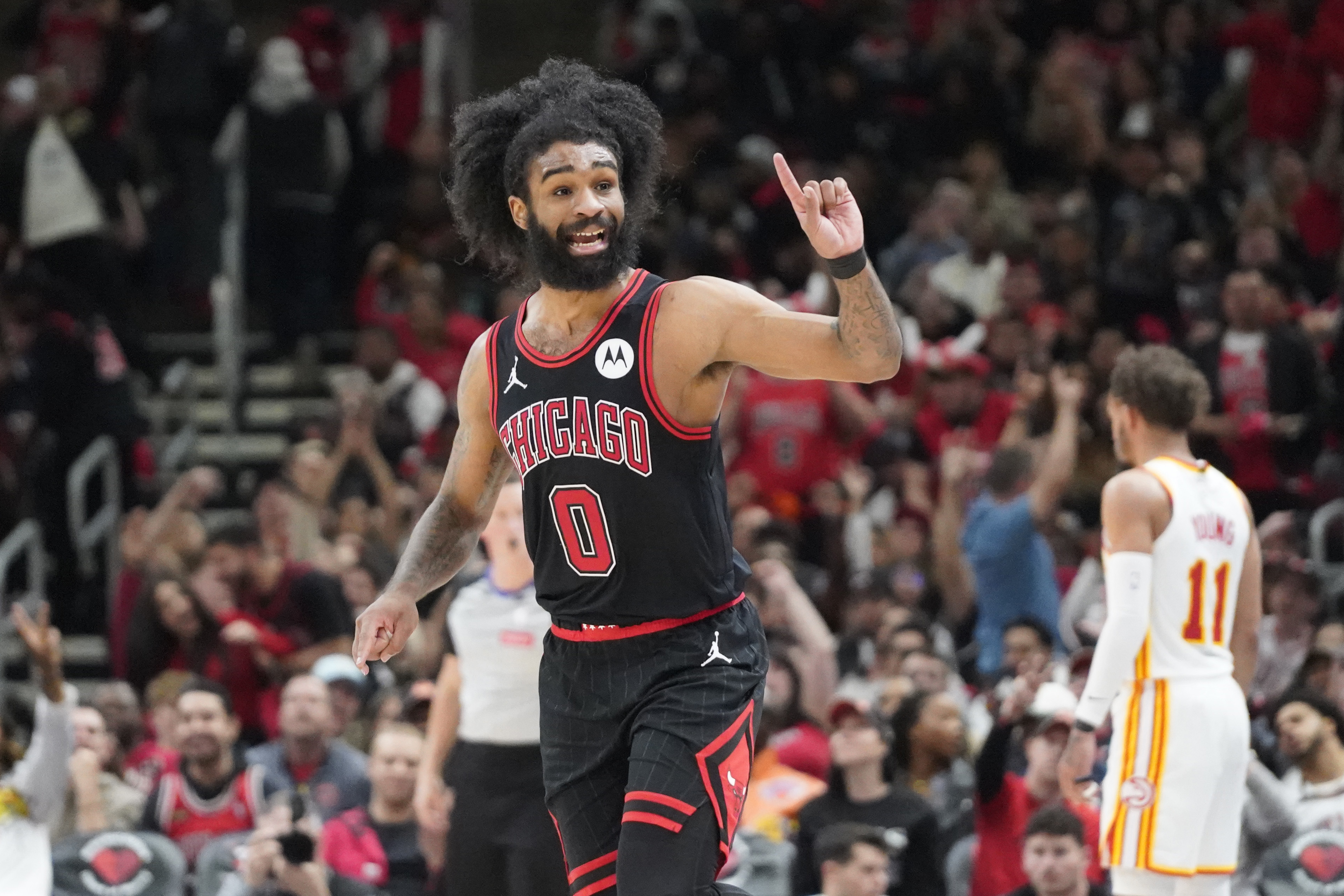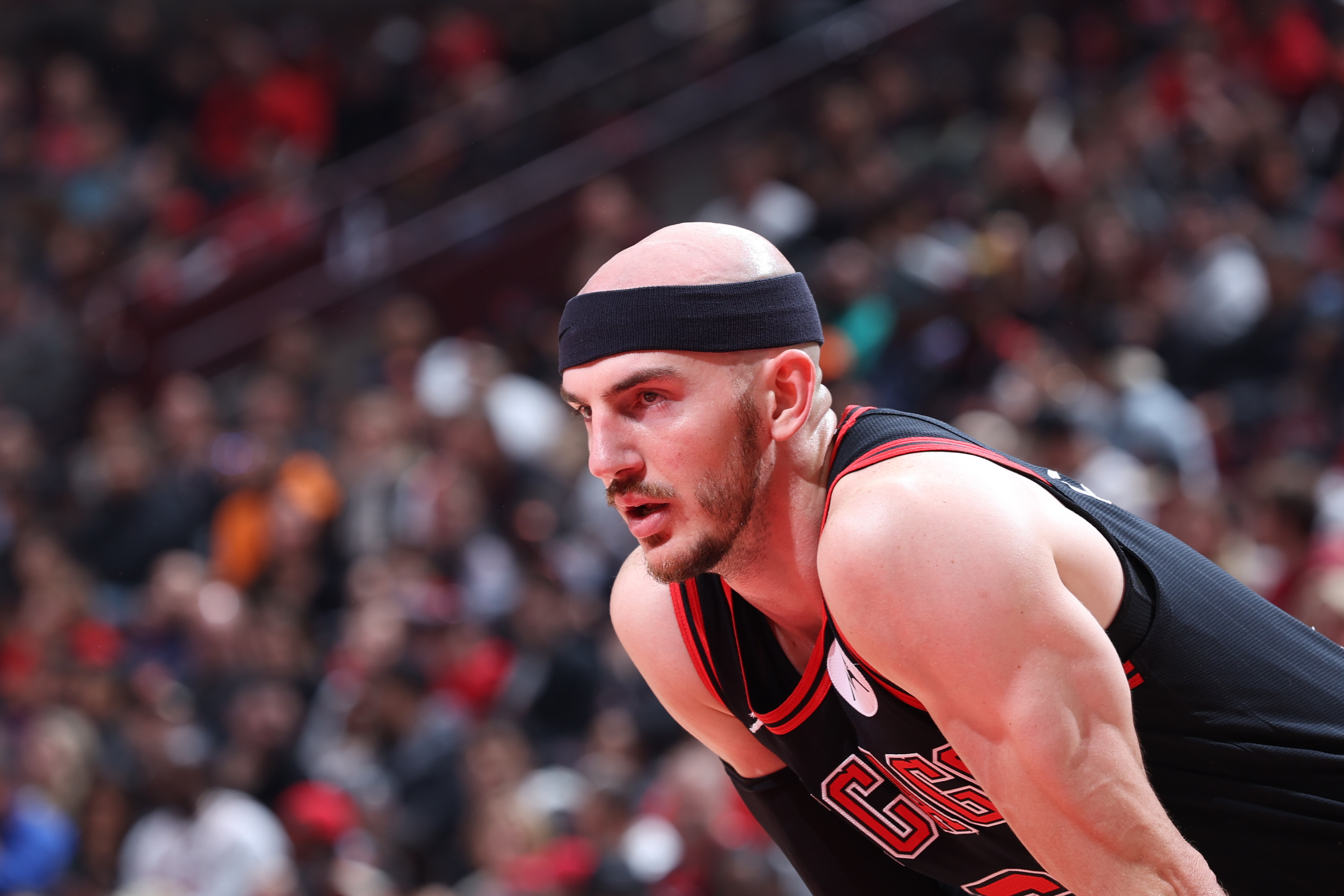
Tai Streets arrived at a crossroads in his life in 2005. One of the most accomplished three-sport athletes in state history, perhaps the best since Centralia's legendary Dike Eddleman in the 1940s, Streets' six-year career in the NFL was over. What direction was he going to take?
Would you believe basketball? He grew up in Matteson and joined coach Ron Newquist's Wolverines, a south suburban AAU team, while he was attending Rich South in Richton Park.
"It was a totally different experience," Streets said. "It was something to do in the summer. I loved competing and I loved playing basketball. We played against the best players in the country. Our goal was to go to the state and national AAU tournaments. The nationals were in New Orleans. I liked basketball more than football at that time."
Stay in the game with the latest updates on your beloved Chicago sports teams! Sign up here for our All Access Daily newsletter.
After transferring to Thornton of Harvey as a senior, he earned All-State recognition while playing on the Wildcats' 1995 team that ousted top-ranked Farragut and Kevin Garnett in the state quarterfinals but lost to Peoria Manual in the state final.
But football punched his ticket to college and the NFL. He was an All-Big Ten receiver at Michigan and caught two touchdown passes in the 1998 Rose Bowl as the Wolverines clinched a share of the national championship. As a senior, he was voted MVP on a team that was quarterbacked by Tom Brady.
Streets played for five years with the San Francisco 49ers as the fourth receiver behind Hall of Famer Jerry Rice, Terrell Owens and J.J. Stokes. Released after the 2003 season, he signed with the Detroit Lions. After one season, he retired.
"In 2005, my knees were banged up. I couldn't do it anymore, too much pain," Streets said.
News
Fortunately, he had laid a foundation for his future in 2001 when he co-founded with best friend Carlton Debose an AAU team known as the Wildcats. He had been persuaded to launch the project by Newquist, who had too many 14-and-under players and was looking for a way to give them more playing time. "Are you interested in coaching? You should pursue this," Newquist told Streets.
They started their program under the Wolverines umbrella. A year later, they decided to go on their own. They changed the name from Wildcats to Meanstreets, not wanting to think it was a Thornton team. Since then, the program, sponsored by Nike, has grown to involve over 250 boys and girls and has earned a national reputation.
"I wanted to give back," Streets said. "I want to help kids from our area become better people and get to college. It's tough for kids from Harvey to go to college. I wanted to show them that there is a way. That's the reason we did it, why we started our program. We're not trying to get anything out of it except a 'Thank you. You helped me to be a better man and to get me to college.' In our first year, 11 of 12 kids went on to get college degrees."
Streets, who also serves as an assistant on coach Troy Jackson's basketball team at Thornton, admits he is thinking about applying for a head coaching position at the high school level. But he doesn't want to give up his involvement with Meanstreets.
At first, he paid for the club's expenses out of his own pocket. Then Nike came on board in 2005. The advantages are obvious. "The Nike logo helps to get kids. They want to play for a Nike team. They pay for equipment and travel. We still have to raise funds but it helps to have Nike behind you," Streets said.
He admits, however, that the association with Nike and competition with other shoe companies "gets messy at times. Travel basketball is crazy, so many programs, so many tournaments," he said.
"People always are badmouthing AAU basketball on TV. Sure, there are slimy people out there. But don't put everyone under the same umbrella. We're not about that. We're about making kids better people. We get kids off the streets. We deal with kids from Harvey, Gary (Indiana) and Chicago who don't have the best opportunities. We help them to get out of their situation. All of us are in it to help kids."
He fights the AAU stigma all the time. A disciplinarian, he won't tolerate kids who don't do their schoolwork or have bad attitudes or lack character. He won't badmouth other programs. His approach is to talk to parents and tell them what he does and how he can improve their child's game and get him to college.
"The proof is in the pudding," he said. "We produce guys. Many critics say kids who participate in AAU aren't instructed in fundamentals, that coaches just toss the ball on the floor and let the kids run up and down. High school is regimented so they just want to run in the summer, right?
"Well, we try to teach them the proper way of doing things, as in college. We want to get them ready for college. They have to be accountable, be on time, abide by curfews on the road, attend meetings. On the court, we teach the mental part of the game, how to handle certain situations. Why did you do this? This is what you should have done.
"College coaches complain that high school kids aren't prepared, that they lack fundamentals. Our kids are college-ready, more than most programs. They won't be surprised at what happens in college."


